#dissent is patriotic
Text
“There has to be a point where the naked lust for power must be replaced by the patriotic duty to do what is best for our country…”
#leadership#democracy#government#corruption#biden corruption#government corruption#national debt#debt crisis#economics#joe biden#joe biden is a failure#patriotism#dissent is patriotic#patriots#voter anger
63 notes
·
View notes
Text
here's a resource to consider for those interested in/involved in/new to organizing: [PDF] the CIA's Simple Sabotague Field Menu (pub. 1944)
an excerpt from the section "General Interference with Organizations and Productions"
1. Insist on doing everything through “channels.” Never permit short-cuts to be taken in order to expedite decisions.
2. Make “speeches.” Talk as frequently as possible and at great length. Illustrate your "points" by long anecdotes and accounts of personal experiences. Never hesitate to make a few patriotic comments.
3. When possible, refer all matters to committees, for “further study and consideration.” Attempt to make the committees as large as possible—never less than five.
4. Bring up irrelevant issues as frequently as possible.
5. Haggle over precise wordings of communications, minutes, resolutions.
6. Refer back to matters decided upon at the last meeting and attempt to re-open the question of the advisability of that decision.
7. Demand written orders.
8. “Misunderstand” orders. Ask endless questions or engage in long correspondence about such orders. Quibble over them when you can.
9. Do everything possible to delay the delivery of orders. Even though parts of an order may be ready beforehand, don’t deliver it until it is completely ready.
+ i would encourage people to read up on instances such as how the FBI sent Martin Luther King, Jr. a letter to get him to kill himself (+ Wikipedia), as well as the FBI infiltrating and harassing the Black Panthers for years (+ scan of 1974 Ann Arbor issue). There's also COINTELPRO, the FBI's widespread efforts to target, surveil, infiltrate, discredit, and disrupt various political parties domestically (+ 50 years ago, the exposure of FBI "undemocratic abuses" against civil rights and anti-war activists). Given the systematic punishing and push back against advocating for Palestinian rights and liberation, i would also advise people to read up on McCarthyism and the Red Scare (Wikipedia, National Archives, Miller Center) + The Attacks on Academic Freedom During the McCarthy Era, to start with.
it's important to read up on and understand the history of organizing in the U.S. and how the government has targeted liberation movements (particularly led by black and brown people). it is also important to be aware of tactics that have been used to sow dissent within pro-liberation/left-leaning organizations.
2K notes
·
View notes
Text
"Dissent and criticism ARE Patriotic" (Hillary Clinton)




... patriots, dissenters and "We The People" are everywhere and standing up against the Great Reset however they can ... if this is the start of the world revolution ... then stock up, load up, speak up and march forward ... while we still can ...
I say to the Evil Elite Davos Demons ...
"Jump up ...
... and bite my oldgayjew ass"
#bjb oldgayjew#bjb oldgayjew prophecy's shout#bjb - barsefrin#barsefrin - the elder#john galt bjb#history's ghost - screaming - again
39 notes
·
View notes
Text
CHARACTER DISSECTION
MORDECAI HELLER of LACKADAISY
For those unfamiliar with the Lackadaisy comic created and illustrated by Tracy J Butler, the pilot animation developed by Tracy and her team, or the upcoming five-episode series crowdfunded by fans, I highly recommend heading over to check those out before consuming this Niche Narrative.
St Louis, Missouri
America is deep in the throes of prohibition. Missouri proudly presents its alcohol-drained bars to the rest of America as a shining example of true patriotism in the dark shadows of the First World War. All across America, this same constitutional change forces citizens to surrender their right to free will, inciting dissent even as governments touted the benefits; working harder, earning more, stable family dynamics. The American Dream.
Many loyal Americans were not so convinced and so, they took their needs underground. An entrepreneur in possession of the Daisy Cafe, which was conveniently situated above a vast network of natural caves, Atlas May utilised both his wit and charisma - as well as the charms of his attractive wife, Mitzi - transformed the damp corridors into a vivacious playground even a most pedantic officer would overlook for a measure of fine whiskey.
The Lackadaisy Speakeasy was born, and she flourished for half a decade.
Though Atlas was not naive; he knew market exclusivity was limited and as such, the businessman quite wisely surrounded himself with the formidable associates one would expect from a smuggling operation; Viktor, a former Slovakian soldier built like a bearcat and Mordecai, a sharpshooting jack of all trades known for cooking books and cracking safes on the side. With those sour faces punctuated by a smattering of colourful characters to form the band and run errands, the Lackadaisy Speakeasy flourished in the bowels of St Louis, mostly undisturbed, through much of the twenties.

Mordecai (left) with Mitzi and Atlas May (centre), celebrating the New year in 1926 with Lackadaisy staff months before Atlas’ death
Until tragedy struck; Atlas met a gruesome end at the hands of an unknown assassin. Yet what was already a crippling blow to the Lackadaisy crew would only fester and rot in the months to come. Rumours would flow of Mitzi May’s involvement in Atlas’ death, tarnishing her reputation and seeing clients peel away from the establishment with concerning velocity. In the wake of financial struggle, bills mount up and hopes turn sour, until even an employee abandons the establishment for their main competitor, leaving the Lackadaisy corpse little more than brittle bones and dust.
This deserter, who abandoned his mistress in her time of need, going so far as to disable a former friend and comrade in the process? He is Mordecai Heller, a stray Atlas saved from past repercussions and trusted.
What remains to be explained is simple. Why? A secretive, astute man with impeccable posture, little patience for anything superfluous and a sour expression permanently affixed to his features, Mordecai is not someone most would approach for a conversation, but an unwillingness - or perhaps an inability - to conform to societal norms and blatant treachery are not mutually exclusive.
In this Niche Narrative, we’re going down the Mordecai Heller rabbit hole. Using every official Lackadaisy edition, mini strip, the Lackawiki plus my own research, we’re going to unravel the motives to explain how he became the Mordecai Heller portrayed in the comic series, why he decided to commit atrocities for both Atlas and the Mirabel Hotel and finally, if he could ever redeem himself in the eyes of former comrades, based on the information currently available.
Make some tea, grab a snack and get comfortable. We’re about to dissect Mordecai Heller, the principal antagonist of Lackadaisy.
Humble Beginnings
According to the Lackadaisy Wiki, Mordecai Heller was born on the 28th of March in 1899 in New York City. Not much is known about his parents beyond their first names - Issaac and Tzipporah - and that they are first generation German-Jewish immigrants. The eldest of four children and their only son, Mordecai would become the man of the house at the tender age of eleven after his father suffered a stroke and never recovered. His youngest sibling would also die in infancy, leaving three children and their mother living in abject poverty.
We don’t know if Mordecai was close with his father, but by how seriously he took his role as provider, we can extrapolate that he cared far more for his family than his adult persona leads most to believe him capable of. Utilising an inborn penchant for order and an efficacy with numbers, Mordecai became a bookie soon after his father’s passing, scraping together enough money to keep his family afloat while his mother assumedly raised him and his sisters.
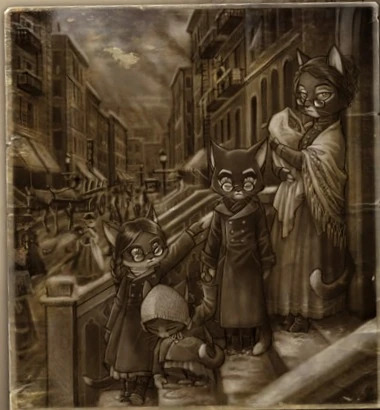
Left to right; Esther (9), Rose (5), and a severe-faced Mordecai (11) pose with their Mother, holding his infant sibling, on the steps to their home.
Years later, Mordecai would realise there's more money to be made in the city. The exact trigger for this escalation is unclear, but we can guarantee it wasn't greed after many years of remaining loyal to his mother and sisters. Most likely, increasing demands on his meagre earnings caused shortages, and with the conviction he's already proven to possess, the young cat made a questionable decision; to murder an employer's underling and take his place in the hierarchy in 1916.
While tenuous and arguably shortsighted, this new position gave Mordecai intimate access to his boss' accounts, and the tuxedo cat didn't hesitate to embezzle funds into savings for his family. It reeks of naive desperation an adult Mordecai would likely scoff at, but for a kitten trying to support his family, it was a lifeline.
As expected, Mordecai's deception is swiftly uncovered. He's next seen riding the train south sometime between 1917 and 1920 with just the clothes on his back and a bloody nose, desperately attempting to scribble a letter to his mother. Detailing the location of the money he's stashed, as well as urging her and his sisters to move to better housing, it's hastily stamped and postage requested by a stranger, though Tracy has confirmed this edition of his final letter didn't make it to the mail; he drafted a cleaner one at a later date.
Watching the young man scramble to send this final goodbye is heart wrenching, showing just how much affection he carried for his family. He practically condemned himself to death to procure those funds and at just seventeen, he leaves behind not only his family, but the only city he's ever known. It seems Mordecai might perish on the train that night too, given the unsavoury characters in the carriage.
That is until divine intervention - or perhaps a spirit of old - swoops in at the last moment, changing the course of Mordecai's life forever. Taking the proffered olive branch, the young feline would enter an underworld even darker than the one chasing his coat tails, and that is where his story truly begins.
Appearance
Mordecai Heller cuts a fine figure in a tailored, black three piece suit with a blood red tie slicing his otherwise monochromatic profile from neck to chest, an iconic pair of pince-nez adding to his glare. He often wears a broad brim hat and a black trench coat, often concealing a shoulder holster equipped with his weapon of choice; the cold efficiency of a handgun.

Standard attire, including a Marigold pin.
Despite his status as a sharpshooter, Mordecai has congenital myopia and has worn glasses since entering education. Given myopia causes long-sightedness, it's assumed he is somewhat effective in his profession without them, but they are a fixture in his everyday attire likely due to his fondness for reading, accountancy and of course, simple habit.
While not physically gifted, Mordecai's intellect is well above average, a childhood of reading in solitude affording him a diverse vocabulary that leads to verbose, complicated responses to simple inquiries.
Having grown up impoverished, Mordecai takes great pride in his appearance as an adult and, regardless of circumstance, is usually seen in a three piece suit. He has few occasions to dress informally due to his lifestyle, though there are a few interactions that suggest he would not be caught dead in casual attire regardless:
Tracy once discovered Mordecai dressed up to use an electric iron, because he felt such an occasion deserved respect.
Serafine recently carved a Voodou glyph into Mordecai's chest against his will. It can be seen to stain his collared shirt for some time after, even while conducting private investigations into Atlas' death.
Having used them in the past, 'Mordecai Heller' is assumed to be an alias, though no real name has been shared. This was likely a calculated move to protect his family from the backlash his questionable practices may incur. His only other known alias was Elijah Metzger - 'Butcher' - a fitting name given his hatchet-wielding future.
Relationships of Note
For a man who actively chose not to interact with most people, Mordecai developed quite a list of close relationships during his time at the Lackadaisy Speakeasy. Not yet the dignified feline of the web comic, these relationships - particularly early ones - helped shape Mordecai into the man he was when Atlas May was murdered.
Let's break down the most influential, starting with the obvious.
Atlas May
It would be impossible to reflect on the man we know as Mordecai Heller without exploring his relationship with the man that saved his life on that train ride. A quiet man with an expressive brow, Atlas possesses the life experience to recognise a young man in need of assistance and the skill to offer it without a word. With just a glance, a heartbeat, and a firearm left within a discarded newspaper, Atlas May provided Mordecai with the tool needed to break free of fate and seize control of his destiny.

Atlas May (right) with Mordecai Heller soon after his recruitment
There's little information regarding the four years between their first interaction on a train in the late 1910s and the Lackadaisy Speakeasy opening in 1920. Before becoming an entrepreneur of illicit substances, Atlas is known as a restauranteur, already owning the Little Daisy Cafe above the caves that would eventually disguise the true nature of his business when prohibition law came into full force in 1920.
With his affinity for bookkeeping, it's feasible Mordecai was kept on to manage the accounts at the Little Daisy Cafe, though his history with embezzlement and bookkeepers lends itself to illicit trading. Mordecai is hardly recruited in the traditional way either, which only convinces me further that there was something going on beforehand. Sadly, we have no definitive evidence of either his or Atlas' dealings beyond together until 1920.
Regardless of the goods involved or seemingly the job required, Mordecai was devoted to his service until his untimely death in 1926.
A young man in a new city and emancipated from his family for their protection, Atlas May becomes a veritable anchor. Under his service and guided deeper into the roaring underbelly of the city, Mordecai can be seen to fully take shape into the character we know, actively adopting a disinterested, flat tone and permanent scowl likely modelled off Atlas' own business appearance.
It's possible Atlas became a surrogate father figure to Mordecai, whose own father passed away when he was just a kitten. Additionally, little contact with his family since he fled New York places those at the Lackadaisy not only as the young man's found family, but Atlas as his role model, especially as he's newly introduced to the St Louis underworld.
There's limited resources in regard to both his personal and professional relationship with Atlas May, but what can be heavily inferred is a deep respect extending beyond simple loyalty. It's suggested Atlas helped Mordecai deal with some of his past pursuers, potentially indebting his life to the entrepreneur once more.
Even after abandoning Lackadaisy for greener pastures, Mordecai actively conducts private enquiries while working for Mirabel Hotel, going so far as to conceal an intended target of Asa Sweet to question him further.
Whilst conducting these enquiries, Mordecai is seen in his least composed state; he lacks his waistcoat and suit jacket, his shirt is stained with blood where his chest still bleeds and he looks generally dishevelled. He agrees with the notion his new position may consist of tying up the loose ends of Atlas' death, and it troubles Mordecai greatly this could be true.
Taking this obsession into account, he seems to carry some level of guilt alluding to the snippet of information yet to be revealed he and Mitzi discussed. Atlas May was, and remains, one of the prominent influences in Mordecai Heller's actualisation as a career criminal, even after his death.
Mitzi May
From references, Mordecai's entire relationship with Mitzi is deeply intertwined in his association with Atlas. As the man's wife and confidante, Mitzi was a fixture at the Daisy Cafe and now owns the Lackadaisy Speakeasy, making her Mordecai's boss when he defected to the Marigolds for unknown reasons. Besides this affiliation though, their interactions are often a joke at Mordecai’s expense.
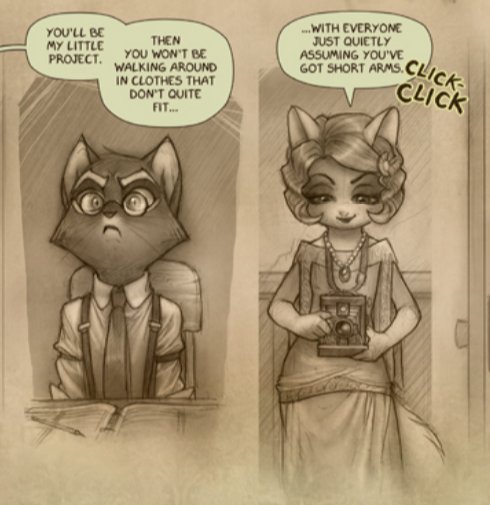
Mitzi and Mordecai were never friends - nor did he ever view her as family - as from the outset, she did not respect his boundaries. An early interaction showcases this as Mitzi takes photos of him as he tries to work, for no other reason than she wanted Mordecai to do something other than scowl. She achieves this by teasing him, stating how his oversized shirt makes his arms look disproportionately short.
She can also be seen teasing him for a lack of social skills, inviting young ladies to persevere in engaging him to dance, despite his lack of interest. Needless to say, it did not go well, and such arguably petulant behaviour likely bred resentment against Mitzi that soured after her husband's death.
Any remnants of a personal relationship were shattered when Mordecai betrayed Mitzi's trust in spectacular fashion. Not only did he empty the armoury on his way out, but shot out the knee of former friend and remaining sharp shooter, Viktor Vasco. She has no reservations bringing it up when forced to face Mordecai at a luncheon with Asa Sweet and as a testament to their sour relationship, refers to Mordecai's presence as 'salt in the wound.' Mordecai ultimately excuses himself early.
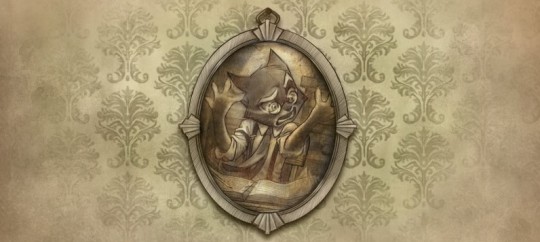
A rare candid photograph of Mordecai, checking the length of his arms. (credit: Mitzi May)
Perhaps their only shared interest was Atlas. Though for entirely different reasons, the pair both idolised him in life and remain fixated on his untimely demise.
We learn a lot about Atlas' death during a terse, private exchange in Mitzi's car after the forced luncheon. It's revealed they possess information regarding Atlas' death neither has shared with their respective associates. Additionally, Mordecai can't quite explain why Marigold is acting so aggressively when there is almost no competition in St Louis and most interestingly, and a flashback frame shows them exchanging a firearm in the rain, though the circumstances are unclear.
Mordecai gets nothing useful from Mitzi, and the conversation culminates in two important things to note; reminders that Mordecai considers her complicit in Atlas' death and to stay under the Marigold's radar, as he won't hesitate to truly ruin all that remains of Lackadaisy if tasked. It's safe to say their only connection has always been Atlas May. Even after his murder is solved, there's almost no space for reconciliation, nor is Mordecai likely to return to Lackadaisy if the establishment survives.
Viktor Vasko
If Mordecai were to call anyone a friend, Viktor Vasko would be the most likely name on his lips. While the word has likely never been spoken, there's an arsenal of evidence to support the hypothesis, both while working and at rest, but let's explore their history before we get into the intricacies of their current tumultuous state.
After receiving help from Atlas May for his court case and freshly missing an eye, Viktor Vasko joined the Lackadaisy crew in 1920. Mordecai had been associated with Atlas for four years before this date and was an established part of the company at the Little Daisy Cafe above. It's during this time, guided by Atlas' smuggling ventures, their partnership took shape.
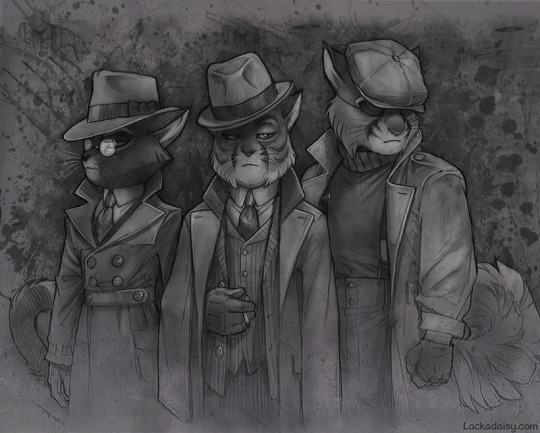
From left to right; Mordecai, Atlas May and Viktor Vasko
One of their earliest misadventures can be seen here, at the climax of what is aptly titled the Massacre. We might assume soon after Viktor's recruitment, as it's a rare glimpse of Mordecai seemingly trying to understand how someone else thinks and functions, all while Viktor pulls a litany of confused expressions, the pair covered in their victims' blood.
It suggests he somewhat admired or felt kinship with the older feline and was attempting to be funny, though Mordecai's sense of humour is… lacking, at the best of times. Viktor just doesn't seem sure what to make of it, but evidently isn't opposed to the idea, as there's evidence of a more personal relationships later.
A flashback within the comic itself shows their choreographed teamwork on assignment, early in their partnership. Although Atlas is pictured alongside Viktor and Mordecai in the aftermath, it's obvious the devilish duo deal with the dirty work themselves, assassinating operatives and burning their rival operation to the ground.
Mordecai also makes missteps, falling from the second storey during a shootout and losing his pince nez, then asserting that had been his intention the entire time to a brawling Viktor. In an early show of comoradare, after setting the place alight, Viktor retrieves the lost spectacles and returns them to their owner.
While it's rumoured a piece of shrapnel could be responsible for Mordecai's social shortcomings, he's been remarkably oblivious to social cues since childhood, which reflects in his own lack of expressions. While Mitzi has given offered him guidance (and set him up for failure) in the past, it's Viktor giving constructive criticism of his interpretations that shows how close they were, even if it results in a minor argument and a terrifying display for the poor recipient.
As they become more comfortable, they express their personalities more openly, leading to this gem while driving an ill-fated third feline to their doom. Mordecai doesn't beat around the bush this time with expectations, both for Viktor and their passenger. It causes quite a scene and the car barrels down into a cornfield, but this also provides a quick-fix opportunity to dump their cargo there and peace is restored.
Frequently tasked with the less glamorous jobs smuggling entailed, Mordecai and Viktor spent a lot of time in each other's company cleaning up for Atlas. This culminates in a number of almost farcical anecdotes much like this or the snippet below, where their shared disdain for a yapping chihuahua results in the dog digging itself an early grave.

A dog, having offended both Mordecai and Viktor, being forced to dig its own grave
With Atlas' death, everything changed. There's not much information beforehand, but we know how Mordecal left the Lackadaisy Speakeasy; by emptying the armoury and kneecapping Viktor. He claimed this to convince the veteran to retire when Mitzi brought it up bitterly at luncheon, stating: "that's how one reasons with Viktor."
At first glance the move seems calculated and cold, especially considering the state Lackadaisy fell into with accusations of Mitzi's involvement in her husband's death. If there's any truth in his assertions however - and Mordecai isn't one to lie or mislead - he likely believed it the only way to keep Viktor from being a future target while he worked with the Mirabel Hotel.
It's confirmed that emptying the armoury was ordered by Asa Sweet during Luncheon, which crippled the Lackadaisy's ability to retaliate. Along with attempting to retire Viktor and warning Mitzi to lay low for the foreseeable future, this undermines his often cold exterior and belies affections he used to afford to family… and perhaps, that is what they are, even if he despises having those loyalties.
Regardless of his motives, Mordecai has backed himself into a corner with Viktor. The veteran is a formidable foe even with one working knee. Should their paths cross again, I doubt it will be resolved as amicably as previous altercations, and likely hinges on the contents of their last interaction as tentative friends.
Asa Sweet
A pompous, self centred man in charge of the Mirabel Hotel, Asa Sweet isn't the usual kind Mordecai is used to keeping company with. In fact, they seem to despise each other in every scene they're forced to interact, with Ada's clear mockery of his character breeding irritation in Mordecai on a daily basis. Unfortunately, as the tuxedo cat's direct boss, they converse often and almost exclusively to Mordecai's detriment.
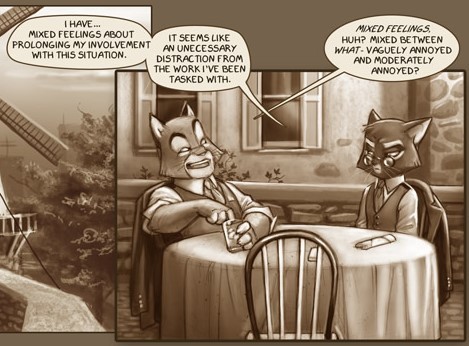
Asa Sweet mocking Modecai’s capacity for emotional breadth
The Marigold Room was already well established by the time Atlas began his own ventures, the entrepreneur visiting its halls and even pilfering Mitzi and her band from their lineup. Practices that could breed a bloody resentment when in the smuggling and bootleg trades.
Mordecai is previously pictured in the Marigold Room with Atlas and Mitzi, assumedly not at his request given his disdain for idle socialisation. He could have been there to accompany Atlas to deal with Asa if we employ conjecture. There's another photo of Asa Sweet and Atlas May sat at the bar, seeming to smoke cigars and talk amicably, so they were likely friends.
This friendship extends to business, established at the luncheon with mention of suppliers the other would not touch. It should be noted it's also stated these agreements were with Atlas, not Mitzi, and Asa shows no remorse for trading with previously protected Lackadaisy sources after her husband's death.
Incidentally, Asa claims he warned Atlas about bad blood beforehand. Mordecai tries to draw more information about this from his new employer but ultimately fails, leading him to begin private investigations that utilise one of Asa Sweet's intended targets, Gracie Grombach, to get the name of a potentially involved parole officer he's yet to meet.
Despite Asa Sweet's stature, Mordecai makes no attempt to pander to his new boss when they converse. Most likely because they usually end in a joke at Mordecai's expense; constant jabs at facial expression, apparent lack of empathy, social inadequacies and even the hatchet joke are but the tip of the iceberg, amounting almost to a vendetta against the pilfered sharpshooter.
There's no respect or loyalty to Asa. Known for not suffering fools lightly and being ruthless in his management of others, Mordecai probably has few motives for accepting employment with the Marigold Room, only one of which makes sense with the information at hand: he's certain that Asa or an associate of the Mirabel Hotel has more information regarding Atlas' death, which he intends to bleed out of whoever necessary.
I feel it can be said with confidence that, even with an inadequate motive, Mordecai wouldn't hesitate to put a bullet between Ada's eyes.
Allegedly.
Nicodeme and Serafine Savoy
Being relatively new to the comic, there’s little information to analyse between the tuxedo cat and the Nicodeme or Serafine. Regardless, these interactions showcase Mordecai’s apparent contempt for the pair and how they operate, especially the loud manner in which they manage dealing with the Lackadaisy crew in the show’s pilot. His serious, logical nature clashes with their spirit beliefs and even their characters frequently.
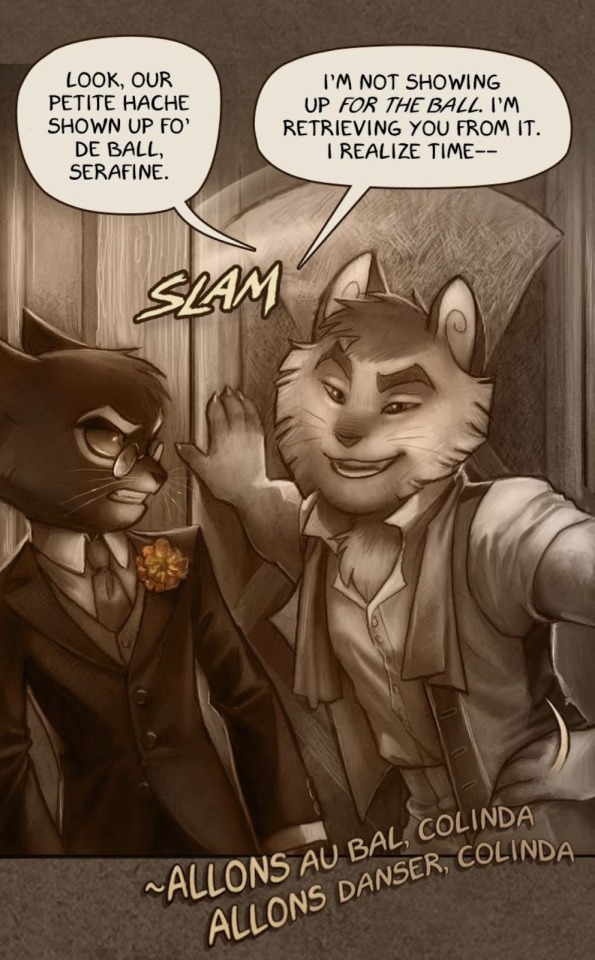
An example of Mordecai’s general reaction to either of the Savoy siblings, Nicodeme pictured
While Mordecai expresses a desire to know more about Nico and Serafine, it is for his own knowledge and not an attempt to make friends. He does not seem to fear them, nor does he respect them, a sentiment that extends both ways. The siblings often make jokes at his expense, or criticise his inability to have fun on the job, which only ever causes Mordecai to scowl.
Nicodeme is a few years older than his sister Serafine, though they both speak with a lazy drawl with a heavy Cajun accent that is almost identical. It’s established that the siblings were orphaned young and ended up at a segregated home, whereupon they decided to run away rather than be separated. It’s here they claim to have been led by Maitre Carrefour - a swamp spirit the siblings believe to be ever-present in their lives - to safety with Voodoo practitioners in the swamps.
It’s noted in the Lackawiki that Serfaine has become somewhat of a Voodoo priestess in her own right, skewing or rewriting established superstitions to form her own sect of Voodoo beliefs and practices. Of the two, Nicodeme is relaxed and laid back, while Serafine has arguably the strongest character and possesses some ambition, though what those ambitions will ultimately lead to have yet to be established.
Headhunted from a rival bootlegging operation by Asa Sweet, the Cajun siblings are assigned to Mordecai to assist with his current work, which has yet to be confirmed. Mordecai suspects he may be cleaning up loose ends in regard to Atlas’ murder or perhaps a wider conspiracy, but has not shared this with Serafine and Nicodeme. He does not trust them, nor does he like them, and willingly conducts work alone when he’s able to shake the pair for a while.
On one of their earliest engagements together, Serafine and Nicodeme convince the stoic feline to strip down to his underwear and create a veritable mess with a hatchet to murder Asa’s newest targets. It’s later disclosed that this was a joke, but once he complied neither of them wanted to stop him. Asa Sweet can be heard in the Lackadaisy pilot episode referring to Mordecai as the ‘infamous hatchet man’, proving the siblings did not keep this joke to themselves.

Imagery of Maitre Carrefour over Mordecai as he nurses his ‘gift’, while Nico and Serafine watch on
Despite his lack of interest in their beliefs and lifestyle, Serafine and Nicodeme were not so disenchanted. They see within Mordecai something akin to themselves, a lost soul led to salvation, truly believing Maitre Carrefour altered the tuxedo cat’s course through life so he would interact with theirs. Either for Mordecai’s future success or a loyalty to the spirit, they trick Mordecai into joining a celebration in His name and share their history with Maitre Carrefour, implying the dozen others in attendance have all been saved at some point in their lives, then invite Mordecai to join them.
Mordecai refuses, sceptical of their claims and not inclined to befriend the siblings. He actively objects multiple times and even attempts to leave, however finds himself outnumbered and ultimately forced to comply, receiving a painful souvenir of the party; Maitre Carrefour’s protection glyph, carved into the flesh over his heart.
Core Personality
At his core, Mordecai is intelligent and clinical, able to evaluate large volumes of data within a short space of time and react swiftly to protect both himself and those who possess his respect, though it is not easily earned. Should you be privileged enough to possess his respect, you'll find the frosty feline loyal almost to a fault.
Friendliness doesn't come naturally to Mordecai, but with his respect comes an undying loyalty. This can be seen in his continued investigations into Atlas' death, focused entirely on the man he respected and not the widow he disliked. He has no loyalty to Lackadaisy as a whole, only to the man he respected while alive.
Affection is difficult for Mordecai. His expression of it is usually through thoughtful gifts or action, such as a gifted tie or unquestioningly following orders. He has little sentimentality for things or gifts himself, keeping very few belongings other than clothing, nor bothers to invoke sentiments in others. They simply make him uncomfortable.
Mordecai prides himself in clean effectiveness in all aspects of his life. He does not like to be idle, choosing to trade stocks to boost his earnings and keep his mind busy. Gossip and needless socialisation bore him, as do parties, meetings and luncheons that don't achieve a purpose.
A focused individual, Mordecai despises mess or idleness, preferring to keep busy between jobs by trading stocks and keeping meticulous books for his own benefit. He possesses little patience for wasting resources and has a very dry sense of humour, often misunderstanding social cues and remaining oblivious of the true meaning.
Despite all of this, he can be distracted by his own unique preferences for order or symmetry, becomes so obsessive over Atlas May's death he actively undermines what Lackadaisy has left to get a shoe in with a competitor, and is often construed as rude or insulting in conversation.
Motives: Lackadaisy to Marigold Employee
While it's not exactly mentioned, it's possible he left Lackadaisy for financial reasons as well as to pursue his own investigation of Atlas' death. With swirling rumours of Mitzi being involved and their smuggling routes being muscled into by competitors, the Lackadaisy Speakeasy was on the verge of bankruptcy, leaving Mitzi unable to pay any wages when Mordecai left.
Emptying the armoury wasn't his own decision, but an order by his new boss, one he would need to complete to earn trust and wages at his new job. While it would further condemn his old establishment to closure, Mordecai's loyalty died with Atlas, leaving few conflicts of interest for the feline sharpshooter to consider.
It's possible he left solely to investigate Atlas' death more thoroughly and suspecting Sweet of involvement, agreed to a deal when offered the job transfer. In this possibility, he's using both his former and current employers to further his own ends, regardless of the consequences, but we have yet to have this clarified.
Mordecai Heller: Man or Monster?
Mordecai Heller is a product of past decisions, opportunities and active influences. He did what he had to to survive, afforded any who assisted him lifelong friendship and offered no apologies for atrocities committed, even against those he used to call accomplices, or even friends.
While he appears uncaring and detached, those who know Mordecai can tease the sentiments from his carefully devised actions. He does not enjoy killing or causing pain, doing so only in his own self interests - or the employer with the most generous wages.
He's lost his best friend, the family he found, all for his obsessive need to uncover the truth of Atlas' early demise. Deciphering the truth of the mystery that plagues his every waking moment and enacting revenge on the responsible parties might afford Mordecai peace, but it won't repair the bonds severed by leaving at such a crucial time in Lackadaisy's uncertain future.
I believe Mordecai has condemned himself to an emotional solitude he thinks will be tolerable if it means he solves his former employer's death. In reality it will likely drive him mad, but he and Rocky will have more to talk about at the next reunion.
Appendixes:
Lesser Influences:
While Rocky Rickaby has some documented history with Mordecai while he worked at Lackadaisy, the pair don't have much of a rapport otherwise. Rocky is eccentric, loud and a little unhinged, all things Mordecai tends to distance himself from. Rocky even has a nickname for him - ‘Old Serious Face’ - that is not affectionately reciprocated. It should be noted he’s willing to shoot Rocky in the pilot, but misses his chance.
Knowing that Ivy Pepper is Atlas’ goddaughter, it makes sense he has some affection for the girl, even if it’s not overtly expressed. They’re not seen to converse directly in the comic or the pilot, though Mordecai consciously decides not to shoot her as she, Rocky and Freckle are fleeing with bootleg liquor. He doesn’t disclose this to anyone after the fact, instead stating the mission simply went awry.
Author's Note
Some of this information was a real struggle to dig up and took about a week to compile, but writing this has been mostly fun. Mordecai has been an obsession since a good friend got me to watch the pilot about a month ago, but I felt his character needed more deciphering than the Wikipedia pages could give me, so this exists now. I hope this was an interesting read for someone, other than myself.
#lackadaisy#lackadaisy cats#mordecai heller#lackadaisy mordecai#character dissection#deep dive#character analysis#antagonist#tracy j butler#niche narratives#niche#is this too niche
62 notes
·
View notes
Text
I haven't seen many people stressing this point, but it is important to foreground that the ways in which people have conflated jewish people and the israeli government, and in this case I'm talking about pro-israel people, bc it actually is insane if you compare it to the way in which we talk about any other group. if you're a prominent jewish intellectual, celebrity, etc, and you have said something even moderately critical of israel, you can get branded a self-hating jew who doesn't understand your own culture, its significance, how much israel has done for you, etc. it doesn't matter how factual your criticisms are, it doesn't matter how well-regarded you are or how good your grasp is of the history, you will have even non-jewish pro-israel commentators regarding you as though you're a pariah who doesn't understand the stakes.
and this, when compared with any other group and nation, is insane. imagine british citizens commonly being called anti-british for daring to speak out against their government. imagine them being told they just don't have a good enough grasp on their history and culture by even non-british people. imagine it not even mattering one bit the ideology of the party in power — right-wing, nationalist, left-wing, liberal — if you spoke out against the state as such, no matter if your own politics are reflected or not by the party currently passing policy, you are some kind of pariah who has positioned yourself as anti your own people's existence. and now imagine people of british heritage but who have never lived in the place, who owe it little to nothing, also being held to this standard.
this is insanity! it shows how incredibly successful the propaganda campaign has been that a jewish person daring to say something bad about israel would even be deemed slightly suspicious or, more commonly, awkward. you simply would never get this reception from any but the most patriotic nationalists for any other state, or else you'd get it from your government themselves if they criticised you for lack of loyalty, or even branded you a national security threat. and if they did, it would be recognised instantly by the common person as a fundamental violation of a group's human rights, of their ability to safely criticise their government (or a government who claims to speak in their interest), and of their freedom of expression and belief more broadly. if china was branding every dissenter as a traitor and threat we all know damn well europeans would be up in arms, because in that case we've been encouraged to think in an entirely contrasting way.
a nation state tells its citizens stories to justify it behaving the way it is. israel isn't special in this regard, but it's an example of where many people, even those entirely unaffiliated with israel, have fully accepted the relevant mythology — that the longevity of jews (in general) is necessarily tied to the state of israel and therefore justifies anything israel deems necessary for national security, and that anybody, jewish or otherwise, who suggests otherwise has necessarily positioned themselves as against the longevity and continued existence of jewish people and culture. we would never typically accept this kind of faulty yet extreme rhetoric if it were applied to other populations of people and would criticise it for being the controlling, limiting, and censorious ideology that it is. if we agree minority groups are allowed to speak truth to power and not show their undying political loyalty and gratitude to those professing to speak in their place then we agree this is a fundamental right across the board for everyone, no exceptions.
27 notes
·
View notes
Text
As things become more tense between the US, Europe and NATO, and Russia and China, it is inescapable the modern United States is a Fascist Kleptocracy using Managed Democracy to create an illusion of legitimacy.
Though we may not have much strength now, Communist groups should plan for the possibility of War. And within that context, consider how we could step up to provide support for dissenting communities who don't wish to be drafted to their deaths.
By involving ourselves and earning our communities' trust through various underground programs, in such a time of crisis, we could rapidly grow our numbers and educate workers to Imperialist and Marxist theory.
From there we could organize Patriotic Resistance Groups to sabotage the Fascist war machine from within and weaken the state through demoralization.
The conditions for change are nowhere near ready for Socialism anywhere in the West. But if we are prepared to take action before a major crisis hits, we stand a chance of creating those conditions ourselves.
#socialism#communism#marxism leninism#socialist politics#socialist theory#marxist theory#socialist news#socialist#communist#marxism#marxist leninist#progressive politics#politics#revolutionary theory#revolution#socialist revolution#communist party#revolutionary socialism#anti capitalist#anti capitalism#anticapitalist#anticapitalism#fuck capitalism#fuck neoliberalism#us imperialism#us hegemony#us wars#us war machine#us war mongering#anti war
72 notes
·
View notes
Text
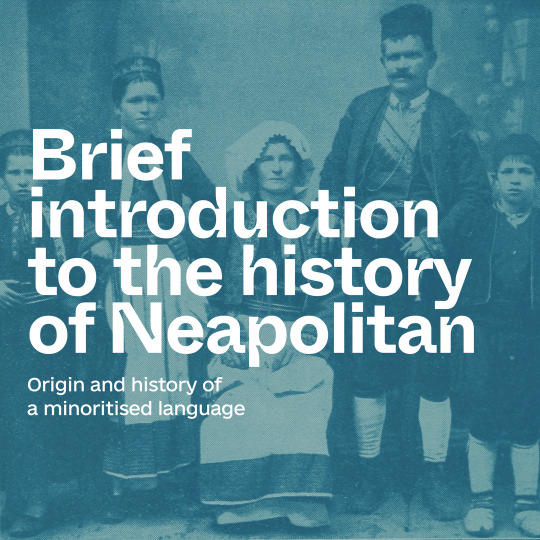
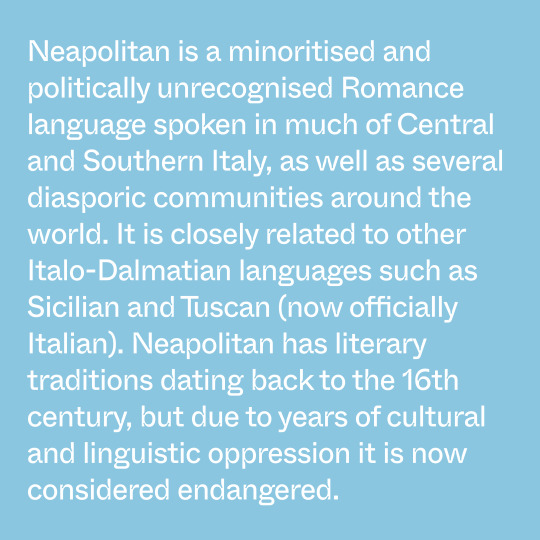

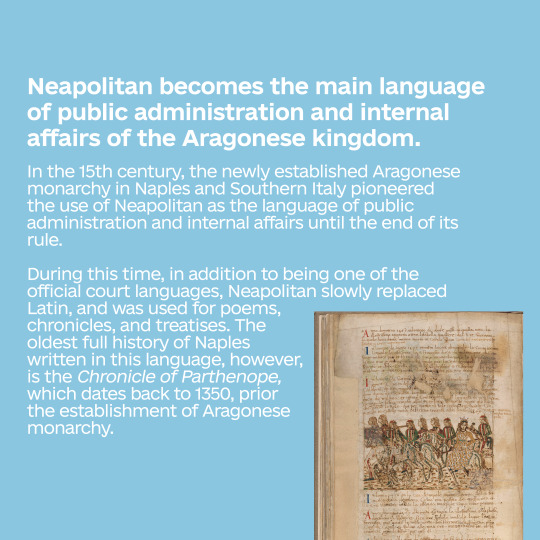
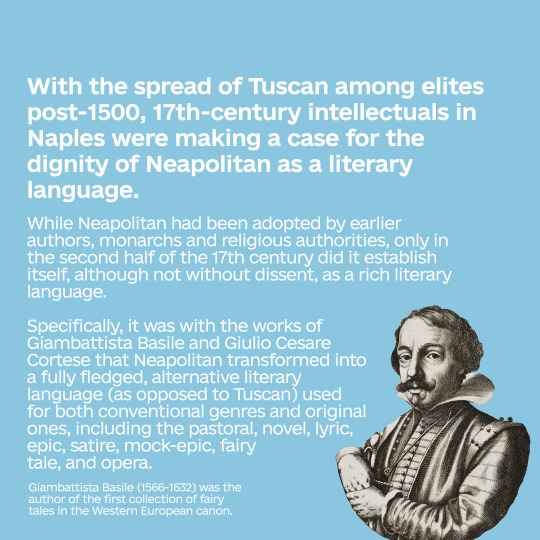
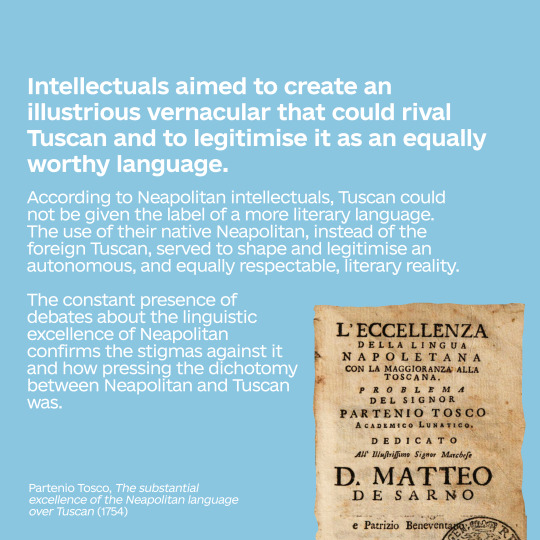
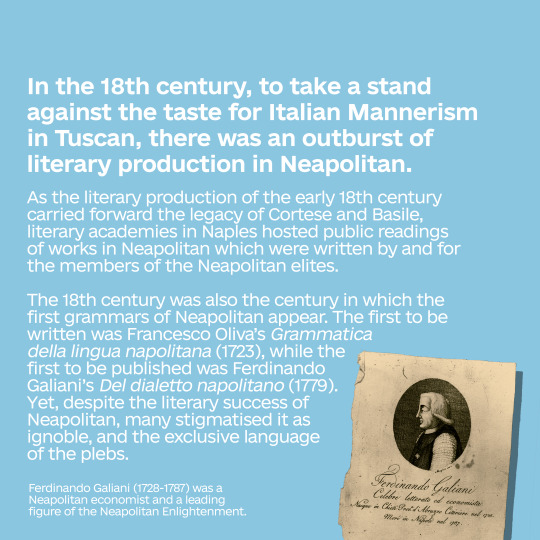



🔵 Brief introduction to the history of Neapolitan: Origin and history of a minoritised language (from @/neapxita on instagram)
✂️ alt text under the cut !!
10th century - Placiti Campani
The first written evidence of Neapolitan dates back to the 10th century, when four sworn declarations were composed in modern-day Campania. Despite the brevity and formulaic nature of the texts, the Placiti campani provide an invaluable early example of the vernacular spoken in Campania, and allegedly the first one in the Italian peninsula.
15th century - Aragonese Court
Neapolitan becomes the main language of public administration and internal affairs of the Aragonese kingdom.
In the 15th century, the newly established Aragonese monarchy in Naples and Southern Italy pioneered the use of Neapolitan as the language of public administration and internal affairs until the end of its rule.
In the 15th century, the newly established Aragonese monarchy in Naples and Southern Italy pioneered the use of Neapolitan as the language of public administration and internal affairs until the end of its rule.
During this time, in addition to being one of the official court languages, Neapolitan slowly replaced Latin, and was used for poems, chronicles, and treatises. The oldest full history of Naples written in this language, however, is the Chronicle of Parthenope, which dates back to 1350, prior the establishment of Aragonese monarchy.
17th century - I
With the spread of Tuscan among elites post-1500, 17th-century intellectuals in Naples were making a case for the dignity of Neapolitan as a literary language.
While Neapolitan had been adopted by earlier authors, monarchs and religious authorities, only in the second half of the 17th century did it establish itself, although not without dissent, as a rich literary language.
Specifically, it is with the works of Giambattista Basile and Giulio Cesare Cortese that Neapolitan transformed into a fully fledged, alternative literary language (as opposed to Tuscan) used for both conventional genres and original ones, including the pastoral, novel, lyric, epic, satire, mock-epic, fairy tale, and opera.
17th century - II
Intellectuals aimed to create an illustrious vernacular that could rival Tuscan and to legitimise it as an equally worthy language.
According to Neapolitan intellectuals, Tuscan could not be given the label of a more literary language. The use of their native Neapolitan, instead of the foreign Tuscan, served to shape and legitimise an autonomous, and equally respectable, literary reality.
18th century
In the 18th century, to take a stand against the taste for Italian Mannerism in Tuscan, there was an outburst of literary production in Neapolitan.
As the literary production of the early 18th century carried forward the legacy of Cortese and Basile, literary academies in Naples hosted public readings of works in Neapolitan which were written by and for the members of the Neapolitan elites.
The 18th century was also the time in which the first grammars of Neapolitan appeared. The first to be written was Francesco Oliva’s Grammatica della lingua napolitana (1723), while the first to be published was Ferdinando Galiani’s Del dialetto napolitano (1779). Yet, despite the literary success of Neapolitan, many stigmatised it as ignoble, and the exclusive language of the plebs.
Ferdinando Galiani
For Galiani, Neapolitan was not just the language of the populace, but the cultural property of the nation.
“Therefore we do not despair yet (...) Perhaps one day our dialect will achieve the most unexpected fortune: we will defend our causes in this language, pronounce our decrees, promulgate our laws, write our annals, and do everything that the patriotic zeal of the Venetians has allowed them to do in their own harmonious dialect”.
19th century - Music
Neapolitan and Neapolitan-language music have a rich and long-standing tradition.
The earliest mention of the performance of villanellas coincides with the visit of king Charles V (or Charles II of Spain) to Naples between 1535 and 1536. The first anonymous collection of villanellas was published shortly after.
After the king’s visit, villanellas, which were sung in Neapolitan, acquired clear political undertones and became representative of Neapolitans’ national identity in the 16th century.
However, the song fest of Piererotta marks a turning point in Neapolitan music history. Starting officially in 1835, the festival constituted a major festivity attracting tourists from both within and outside the kingdom.
1861 and Fascism
At the moment of the unification of Italy in 1861, less than 2,5% of the population was able to use Italian.
Much like Latin in the previous centuries, Italian was an exclusively written and literary language known only to a minority of literate people.
The appearance of the first bilingual dictionaries immediately before and after the unification confirms that Neapolitan was not only the language of the common people but also that of the literate.
In the aftermath of the unification, these dictionaries were used to help students who were monolingual in Neapolitan to learn Italian, the language of the new state.
In the 20th century, the nationalist agenda of the fascist regime suppressed the use of all minority languages and enforced the use of Italian in its stead, especially at school. Children were beaten or otherwise punished, generating fear and shame towards their native languages.
Since then, Neapolitan has continued to be spoken, sung and written, albeit without being taught nor recognised by the Italian state, often coexisting in a situation of dangerous diglossia.
#neapolitan#napulitano#napoletano#romance languages#minority languages#minoritised languages#napoli#south italy#italy#campania#naples
204 notes
·
View notes
Text
Okay, I’m breaking character here, but this is important.
What is going on in Palestine is Genocide. To call it anything else is to be complicit in the downplay of this crisis.
But we already knew that. I’m not going to dwell on what the Palestinian people there are going through; others do that very well, and you should inform yourselves (but not to the detriment of your hope and mental health).
We already know that corporate entities have their hands in this; McDonalds, Starbucks, Disney+, Hewlett-Packard, and PUMA all have supported the Israeli Occupation in one way or another, and are now the targets of a global boycott.
We already know to call our governments and express our opposition to their support of Israel’s Apartheid. We also know that they aren’t going to listen, and will employ the same tactics as they did under the USA PATRIOT act to suppress our cries for peace for the sake of imperial interests around the globe.
We already know that the Canary Mission is being used to create a blacklist of people who have expressed support for Palestinian Liberation. (Again, patriot act.)
We know enough to inform our positions and our strategies. Now is the time to act.
So what then are we to do?
Under the security of anonymity, we must organize ourselves, and plan to raise the voices of dissent and opposition in such numbers that it becomes impossible to discern from whence our cries originate.
We must continue to put pressure on our politicians. Hold your vote as a ransom! Even then, know that this is far from the most effective of avenues through which change can happen.
Those of us with access to unions and their representatives would do well to contact their leadership and urge them to boycott the handling of Israeli goods and propaganda. Without our labor, the great and terrible machines of imperialism will grind to a halt.
Those of us with access to money would do well to find reputable funds and charities through which to support Gazans. Ensure that they can communicate with us, do not let their voices fall silent.
We must work to establish community and build solidarity with oppressed peoples, both in our own lands and in those abroad. We share more in common with the common folk than with our leaders. We must be kind to each other and ourselves, and do what we can to help all according to their need.
Finally, with all these things in mind, we must act. We must hope for the best of the situation, but prepare for the worst. We must abandon the misconceptions that hold us back; individual actions may not have much of an effect, but they have effect nonetheless. It is for this reason that solidarity, community, and organization are of the utmost importance, as together we can halt the gears of oppression and violence.
To those reading: please reblog with relevant and reputable resources. I will work to add them as well. We cannot act if we do not know what we can utilize. Anyone who can translate these words is also highly appreciated.
Organize yourselves against the coming storm, and be safe.
To Gazans, I affirm that you are heard, despite those that try to silence you. There is public outcry against your oppression across all the world. It grows stronger every day, and I do not believe it will stop until you are free.
From the river to the sea, Let Palestine be free.
#palestine#from the river to the sea palestine will be free#free palestine#not about space#free gaza#gaza strip#gaza#stand with gaza
22 notes
·
View notes
Note
I’m with brosef; I also didn’t think there were so many Nazis. Didn’t realize that all the far lefts screaming about Nazis being everywhere was actually about them. They were trying to let us know.
more likely they were trying to distract everyone, misdirection by pointing at a pastor that just wants to speak to his flock not over the internet, or truckers that would like to not be forced to take a vaccine without any knowledge of long term effects, or a veteran who would like to show that they love the country they served by placing flags around their yard, or a group of restaurant patrons that show their patriotism by standing up and joining in with the national anthem, or people that would like to speak about the great things about living in a nation where they're allowed to openly dissent and speak their minds without also condemning some injustice
And on and on.

___________________________-
Those of us that remember 9/11 and the days and weeks after will likely recall a strong level of patriotism and unity and all that good stuff, as a nation we were in shock.
On top of that there was a very loud minority of people that decided that every single person that looked vaguely middle eastern was involved and needed to be punished and a lot of animosity was brought on to not only the Islamic community (who were the intended targets) but also the Sikh and Hindu community because like most racists they were pretty damn ignorant.
It's a stain on our country that that happened, and is still happening occasionally.
I don't remember any significant amount of sanctioned protests calling for the destruction of an entire country and people when that was all going down, note significant because yes it did happen but nothing like what we're getting now with academics and institutes of higher education joining the fray on the side of genocide instead of reason.
This is a headline from yesterday I held on to
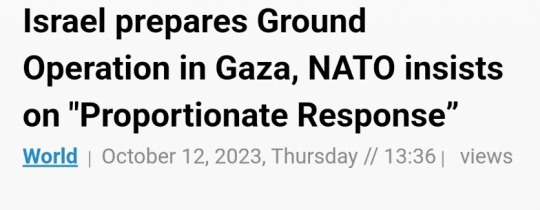
wonder if NATO knows what a proportionate response is and that in this instance it would involve the the intentional murder of hundreds of civilians, proportional would not include giving northern gaza 24 hours to get the civilians out before sending people in, that's going to cost the IDF in lives because it's also 24 hours for booby traps, snipers nests, and various other defensive devices and fortifications to be put together
That's what they've done on top of everything else over the decades to try and minimize civilian death hamass could keep it from happening too, if they wanted the people of gaza to be safe they could surrender, but they likely won't.
And the people on the left and the right that hate Jewish people will firmly place all of the blame on Israel and the Jewish people in general, because the had the audacity to be there first and somehow build all their holy sites right underneath the Islamic ones.
34 notes
·
View notes
Text
“We need leaders and not followers, but the leaders are now cancelled, deplatformed, and silenced to protect the interests of the herd.”
(From my blog archive)
#leadership#democracy#free speech#censorship#cancel culture#extremism#debate and dissent#dissent#dissent is patriotic#do not comply#save america
22 notes
·
View notes
Text
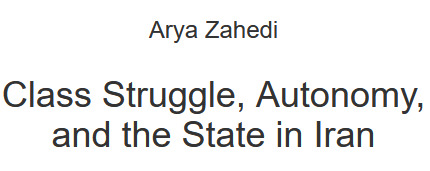
The Winter Years and the War Economy
The period after 1983 was a dark and silent time for the socialist movement, if not the country as a whole. The Left had been crushed and defeated politically, and working class opposition was in a state of retreat. War had come to dominate society. A significant segment of the population was caught up in the nationalist fervor, which entailed at least implicit support for the state. Communists and others who still rejected the state were forced into silence as the tide turned against them. Khomeini described the Iraqi invasion as a blessing from God. The war took the anti-imperialist demagoguery to a new level, providing a new pretense for national unification, resurrecting patriotic ideology that authorized the state to silence dissent. Economic hardships could once again be blamed on the imperialist war-mongers, providing a great opportunity for Khomeini to impose his vision of generalized austerity. The latter also had its ideological components, which was promoted from all areas: sacrifice, suffering, obedience, authority, mourning, martyrdom.
So long as the war raged on, national unity could be maintained, and social-economic problems could be externalized. Iran during these years was a war economy. The war also gave the state the ability to extend its reach further into society. Whereas Khomeini and his supporters had always complained about the bureaucratic complexity of the Shah’s regime, the Islamic Republic expanded the bureaucracy far beyond anything seen during the previous regime. The Islamization of society and the necessity to govern the minutiae of so many people’s lives required the creation of new departments and ministries. The repressive apparatus had to be extended as well. Although the state under the Islamic Republic remains in a certain sense “autonomous” from the bourgeoisie and other domestic classes, unlike during the Shah’s regime, Khomeini successfully built a base that connected popular classes to the state in a way that Muhammad Reza Shah only could dream of. Like the fascist regimes before it, it has incorporated many lumpenproletarian youths into the repressive apparatus. The Khomeinist militias and street gangs had gathered up scores of newly arriving disenchanted and alienated rural people during and after the revolution, people who had lost their old sense of community, and who rediscovered it in and through the mosques. All these were later incorporated directly into the state.
#iran#middle east#Anti-imperialism#history#Ill Will#insurrection#Class Struggle#Autonomy#anarchism#resistance#prison abolition#acab#jail#prisoners#autonomy#revolution#community building#practical anarchism#anarchist society#practical#practical anarchy#anarchy#daily posts#communism#anti capitalist#anti capitalism#late stage capitalism#organization#grassroots#grass roots
10 notes
·
View notes
Text
By: Matt Johnson
Published: Jan 27, 2023
“Christopher Hitchens: From socialist to neocon.” It was an irresistible headline because it’s a story that has been told over and over again. The novelist Julian Barnes called this phenomenon the “ritual shuffle to the right.” Richard Seymour, who wrote a book-length attack on Hitchens, says his subject belongs to a “recognisable type: a left-wing defector with a soft spot for empire.” By presenting Hitchens as a tedious archetype, hobbling away from radicalism and toward some inevitable reactionary terminus, his opponents didn’t have to contend with his arguments or confront the potentially destabilizing fact that some of his principles called their own into question.
Hitchens, who died in 2011, didn’t make it easy on the apostate hunters. To many, he was a “coarser version of [conservative commentator] Norman Podhoretz” when he talked about Iraq, and a radical humanist truth-teller when he went on Fox News to lambaste the Christian right: “If you gave Falwell an enema,” he told Sean Hannity the day after Jerry Falwell’s death, “he could be buried in a matchbox.” Then he gave Islam the same treatment, and he was suddenly a drooling neocon again. He defied easy categorization: a socialist who spurned ideology, an internationalist who became a patriot, a man of the left who was reviled by the left.
The left isn’t a single amorphous entity—it’s a vast constellation of (often conflicting) ideas and principles. Hitchens’s style of left-wing radicalism is now out of fashion, but it has a long and venerable history: George Orwell’s unwavering opposition to totalitarianism and censorship, Bayard Rustin’s advocacy for universal civil rights without appealing to tribalism and identity politics, the post-communist anti-totalitarianism that emerged on the European left in the second half of the twentieth century.
Hitchens described himself as a “First Amendment absolutist,” an echo of historic left-wing struggles for free expression—from Eugene V. Debs’s assertion of his right to dissent during World War I to the Berkeley Free Speech Movement. Hitchens argued that unfettered free speech and inquiry would always make civil society stronger. When he wrote the introduction to his collection of essays For the Sake of Argument in 1993, he had a specific left-wing tradition in mind: the left of Orwell and Victor Serge and C.L.R. James, which simultaneously opposed Stalinism, fascism, and imperialism in the twentieth century, and which stood for “individual and collective emancipation, self-determination and internationalism.”
Hitchens’ most fundamental political and moral conviction was universalism. He loathed nationalism and argued that the international system should be built around a “common standard for justice and ethics”—a standard that should apply to Henry Kissinger just as it should apply to Slobodan Milošević and Saddam Hussein. He believed in the concept of global citizenship, which is why he firmly supported international institutions like the European Union. He didn’t just despise religion because he regarded it as a form of totalitarianism—he also recognized that it’s an infinitely replenishable wellspring of tribal hatred.
He also opposed identity politics, because he didn’t think our social and civic lives should be reduced to rigid categories based on melanin, X chromosomes, and sexuality. He recognized that the Enlightenment values of individual rights, freedom of expression and conscience, humanism, pluralism, and democracy are universal—they provide the most stable, just, and rational foundation for any civil society, whether they’re observed in America or Europe or Iraq.
And yes, he argued that these values are for export. Hitchens believed in universal human rights. This is why, at a time when his comrades were still manning the barricades against the “imperial” West after the Cold War, he argued that the North Atlantic Treaty Organization should intervene to stop a genocidal assault on Bosnia. It’s why he argued that American power could be used to defend human rights and promote democracy. As many on the Western left built their politics around incessant condemnations of their own societies as racist, exploitative, oligarchic, and imperialistic, Hitchens recognized the difference between self-criticism and self-flagellation.
-
One of the reasons Orwell accumulated many left-wing enemies in his time was the fact that his criticisms of his own “side” were grounded in authentic left-wing principles. When he argued that many socialists had no connection to or understanding of the actual working class in Britain, the observation stung because it was true. Orwell’s arguments continue to sting today. In his 1945 essay “Notes on Nationalism,” he criticized the left-wing intellectuals who enjoy “seeing their own country humiliated” and “follow the principle that any faction backed by Britain must be in the wrong.” Among some of these intellectuals, Orwell wrote: “One finds that they do not by any means express impartial disapproval but are directed almost entirely against Britain and the United States. Moreover they do not as a rule condemn violence as such, but only violence used in defense of the Western countries.”
Hitchens observed that many on today’s left are motivated by the same principle: “Nothing will make us fight against an evil if that fight forces us to go to the same corner as our own government.” This is a predictable manifestation of what the American political theorist Michael Walzer calls the “default position” of the left: a purportedly “anti-imperialist and anti-militarist” position inclined toward the view that “everything that goes wrong in the world is America’s fault.”
Indeed, the tendency to ignore and rationalize even the most egregious violence and authoritarianism abroad in favor of an obsessive emphasis on the crimes and blunders of Western governments has become a reflex. Much of the left has been captured by a strange mix of sectarian and authoritarian impulses: a myopic emphasis on identitarianism and group rights over the individual; an orientation toward subjectivity and tribalism over objectivity and universalism; and demands for political orthodoxy enforced by repressive tactics like the suppression of speech.
These left-wing pathologies are particularly corrosive today because they give right-wing nationalists and populists on both sides of the Atlantic—whose rise over the past several years has been characterized by hostility to democratic norms and institutions, rampant xenophobia, and other forms of illiberalism—an opportunity to claim that those who oppose them are the true authoritarians. Hitchens was prescient about the ascendance of right-wing populism in the West, from the emergence of demagogues who exploit cultural grievances and racial resentments to the bitter parochialism of “America First” nationalism. He understood that the left could only defeat these noxious political forces by rediscovering its best traditions: support for free expression, pluralism, and universalism—the values of the Enlightenment.
Hitchens closes his book Why Orwell Matters with the following observation: “What he [Orwell] illustrates, by his commitment to language as the partner of truth, is that ‘views’ do not really count; that it matters not what you think, but how you think; and that politics are relatively unimportant, while principles have a way of enduring, as do the few irreducible individuals who maintain allegiance to them.” Despite the pervasive idea that Hitchens exchanged one set of convictions for another by the end of his life, his commitment to his core principles never wavered. They are principles that today’s left must rediscover.
Matt Johnson is a journalist and the author of the forthcoming book, How Hitchens Can Save the Left: Rediscovering Fearless Liberalism in an Age of Counter-Enlightenment, from which this piece is excerpted.
#Matt Johnson#How Hitchens Can Save the Left#liberalism#liberal ethics#universalism#pluralism#freedom of speech#freedom of expression#free speech#first amendment#identity politics#identarianism#woke authoritarianism#authoritarianism#tribalism#religion is a mental illness
22 notes
·
View notes
Text


made some progress on the new wheelchair (aka Ava Sequoia LaRue)'s new look. not totally sold with the yellow scarf but it might have potential...
[IMAGE DESCRIPTION (of both photos): Photo. back of a black motorized wheelchair. rainbow hat over the headrest & a black heart pin. white text no justice no peace. On the black metal part connecting the headrest to the seat, gold glitter horizontal rectangle, below 2 pink (top) & red flowers. you only see a hint of red. the red flower is semi-covered by orange T-shirt fabric. Hanging down & secured by a black pandemic mask wrapped around, the mask has vertical rows of dangling rhinestones with a bit of orange spilling over on top. And then behind & to the side of the orange T-shirt on the actual back of the seat, white pearl stickers that have the shape of a pearl necklace. To the right, sticker words cut out dissent is patriotic
the only difference between the two photos is 2nd one has a yellow semi-transparent scarf with thin fabric that's dangling from two back hooks on the chair. you still see the orange T-shirt and dangling rhinestones but the ends of the T-shirt (a bit edgier) are now more covered up by the yellow scarf that has a bit of fringes]
#wheelchair#motorized wheelchair#style#disabled#disability#wheelchair style#makeover#wheelchair makeover#colors#disabled af#cripple punk#work in progress
10 notes
·
View notes
Text

And there it is. This is why it's so vital to crush dissent. Universities like Columbia pretend to be centers of learning, wisdom and freedom, but the reality is Columbia has a $14 billion endowment and leaders who make seven-figures. The protests threaten that. It's a business. - Brandon Friedman (@BFriedmanDC)
New England Patriots owner Robert Kraft is pulling his support for Columbia University over the treatment of Jewish students and faculty during pro-Palestinian protests at the campus in New York City.
This is another reason why you should boycott the NFL. Robert Kraft is a traitor to humanity who seeks to promote lies, and obtain power, and riches.
5 notes
·
View notes
Text
FP World Brief: Leaked documents expose Chinese hacking
Chinese police are investigating the leak of hundreds of documents that detail how a private, Shanghai-based firm carried out large-scale, systematic hacking operations against foreign entities for Beijing’s government. Around 570 documents and related intelligence were posted online to GitHub late last week, though it is unclear who published the information or why.
Together, the documents provide an extraordinarily in-depth look into China’s global espionage efforts and hacking-for-hire network.
“We rarely get such unfettered access to the inner workings of any intelligence operation,” said John Hultquist, chief analyst at cybersecurity firm Mandiant Intelligence. “We have every reason to believe this is the authentic data of a contractor supporting global and domestic cyberespionage operations out of China.”
Beijing employed the Chinese firm i-Soon (known as Anxun in Mandarin) to gather information on foreign governments, companies, and infrastructure. The trove revealed contracts going back eight years to extract data for Chinese state and military uses. Targets were located within at least 20 foreign governments and territories, including Hong Kong, India, Malaysia, South Korea, Taiwan, Thailand, and the United Kingdom. One spreadsheet listed 80 overseas targets that i-Soon appeared to have successfully hacked, and another hinted at the firm selling unspecified data related to NATO in 2022.
“In information warfare, stealing enemy information and destroying enemy information systems has become the key to defeating the enemy,” one of the documents said.
The leak also showed Chinese state efforts to surveil its own citizens living domestically and abroad. Beijing is highly wary of dissent inside the global diaspora, which it sees as a potential threat to its rule. “For the Chinese Communist Party (CCP), which sees suppressing any threats to its power as a life-and-death struggle, cyberspace is a new battlefield,” Minxin Pei wrote in an excerpt from his new book in Foreign Policy.
China’s government has employed private companies for the past two decades to conduct intelligence-gathering campaigns for state purposes—sometimes referred to as “patriotic hacking.” Rival firms compete for government contracts by promising to provide better, more damaging classified intelligence. Over the past year alone, U.S. officials say, hackers working for China’s military breached computer systems in dozens of key U.S. infrastructure entities.
6 notes
·
View notes
Text
If you shoot down a packed Malaysian airliner over Ukraine, you get praised. If you insult Putin, you're sent to prison. That's life in a hegemonic dictatorship which is Russia these days.
The last time I saw Igor Girkin was five years ago in the stairwell of a Moscow news agency.
"Would you consider giving me an interview?" I asked. "No," he replied sharply and scurried away.
I saw him again today. No stairwell. This time, Girkin was in a caged dock surrounded by police in the Moscow City Court.
Along with other media we were allowed in to film him for just one minute before the end of his trial.
A police dog kept barking. Girkin found that amusing. The verdict less so. Minutes later he was found guilty on extremism charges and sentenced to four years in a penal colony.
This wasn't his first conviction.
In The Hague in 2022, in absentia, Girkin was found guilty of the murder of 298 people: the passengers and crew of Malaysian Airlines flight MH17.
The Boeing jet had been shot down over eastern Ukraine in 2014 by Russian-controlled forces in the early stages of Russia's war there.
Girkin was one of three men sentenced to life imprisonment. A judgement he ignored.
[ ... ]
Following Russia's full-scale invasion of Ukraine in 2022, ultranationalist Girkin became a prominent pro-war blogger.
He became increasingly critical of the way the Russian authorities were waging the war: not hard enough, in his view.
He founded a hard line nationalist movement called The Club of Angry Patriots.
His problems began when he started to take that anger out on President Vladimir Putin.
Public criticisms of the Russian president turned to insults. In a post last year, Girkin described Putin as "a non-entity" and "a cowardly waste of space".
A few days later he was arrested. Now he's been tried and convicted.
Four years is a rather light sentence for dissent in Putin's Russia. Journalists Vladimir Kara-Murza was recently sentenced to 25 years and Ruslan Ushakov is serving 8 years – just to name two.
#invasion of ukraine#russia#ultranationalists#igor girkin#igor strelkov#war criminal#flight mh17#donetsk#vladimir putin#insulting putin#россия#игорь гиркин#игорь стрелков#военные преступления#владимир путин#путин хуйло#путлер#путин – это лжедмитрий iv а не пётр великий#союз постсоветских клептократических ватников#руки прочь от украины!#геть з україни#вторгнення оркостану в україну#деокупація#слава україні!#героям слава!#stand with ukraine
5 notes
·
View notes